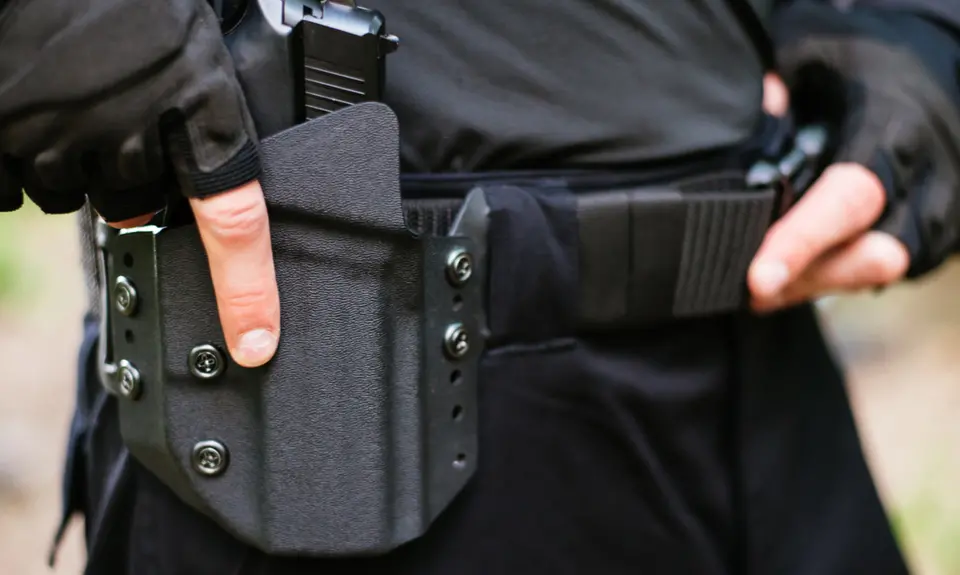In a 2-1 decision, Trump Judge Julius Richardson invalidated a Maryland law that called for background checks and training for those who want to purchase handguns. As the dissenting judge pointed out, Richardson’s opinion “fundamentally” misinterpreted Supreme Court precedent and would make unconstitutional “most” of our country’s laws requiring a permit to buy a handgun. The November 2023 decision was in Maryland Shall Issue Inc. v. Moore.
What handgun safety law did pro-gun groups challenge in this case?
Several pro-gun groups and individuals filed a federal lawsuit to challenge a handgun safety law enacted by Maryland in 2013. In particular, they claimed it violated the Second Amendment for Maryland to require those who wanted to buy a handgun to obtain a license. Under that provision, individuals must complete a firearms safety training course (unless they are ex-military or law enforcement) and must undergo a background check that can take up to 30 days before the license is issued.
A Maryland federal district court rejected the challenge and ruled against the pro-gun groups. They appealed to the Fourth Circuit.
How did Judge Richardson and the 2-1 Majority Rule and Why is it Important?
In a 2-1 decision joined by a conservative judge appointed by George W. Bush, Trump judge Richardson reversed the district court and overturned the gun safety law. Richardson purported to follow the recent Supreme Court pro-gun decision in the Bruen case, under which challengers must show that the law “regulates a course of conduct protected by the Second Amendment.” This case met that mandate, Richardson maintained, because although gun purchasers can meet the law’s requirements and obtain a gun, they cannot do so “right away.” Instead, he argued, a prospective purchaser must wait “up to thirty days” for the state to complete the background check. That thirty days, Richardson speculated, “could well be the critical time” in which an applicant “faces danger” and immediately wants a handgun. This temporary delay, Richardson ruled, was enough to satisfy the Bruen requirement.
Richardson went on to rule that “history and tradition” did not justify the law and it thus must be invalidated. In particular, he claimed, neither the background check that could take up to 30 days nor the training course found justification in America’s history and tradition. Accordingly, he found that the pro-gun groups’ challenge “must succeed” and reversed the district court.
Judge Barbara Keenan, who was nominated by President Obama, strongly dissented. She explained that invalidating a law because it prevents someone from buying a handgun “now” flies “directly in the face of Bruen” and is contradicted by other Supreme Court precedent. In addition, she pointed out, since the Supreme Court decided Bruen after the district court ruling, the case should have been sent back to the district court to analyze history, tradition, and other factors, rather than relying on abbreviated analysis by the appellate majority. As a result, she wrote, Richardson “rushes” to a final ruling, “bypassing the district court’s fundamental role of weighing the evidence” and threatening to overturn “most non-discretionary laws in this country requiring a permit to purchase a handgun.”
Maryland Governor Wes Moore also criticized the ruling, noting that it contradicts the right of Marylanders to “feel safe in their own neighborhood”, and pledged to explore ways to reverse the decision, whether by a full Fourth Circuit rehearing or an appeal to the Supreme Court. The decision is important to gun safety in Maryland and around the country, particularly in the other states in the Fourth Circuit of Virginia, West Virginia, and North and South Carolina. It also emphasizes the importance of promptly confirming more judges nominated by President Biden to our federal courts, where they can counteract votes and rulings by right-wing judges like Richardson.
